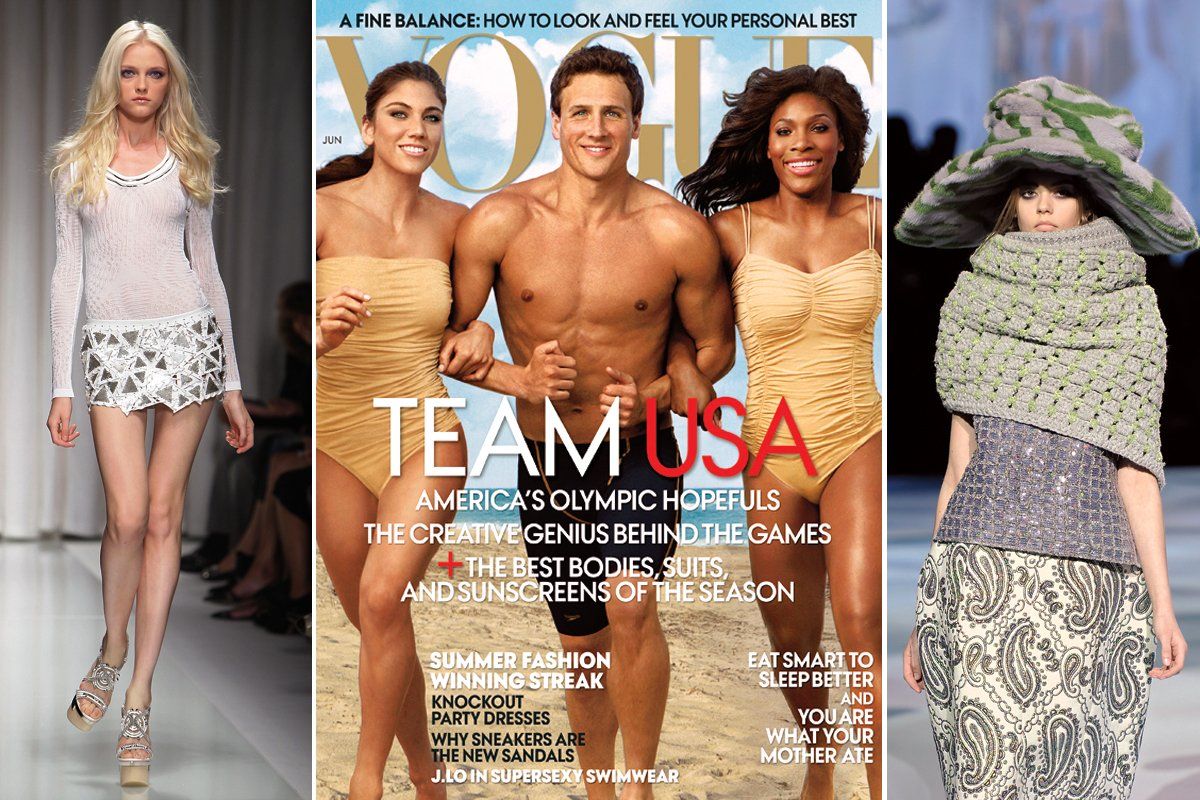
The spring 2013 runway shows, which finished in Paris this month, were filled with impossibly skinny, extremely young gazelles. So were the fall glossies. Fashion as usual, perhaps—yet this was supposed to have changed.
In the midst of the ongoing battle between an industry intent on creating idealized images of women, and critics who believe those images do grievous harm, the 19 editors-in-chief of the Vogue brand banded together last May to announce a détente. They promised not to "knowingly" use mannequins under the age of 16 or those who appeared to have an eating disorder, and pledged to be "ambassadors for the message of healthy body image." To demonstrate their seriousness, they dedicated issues to the cause. American Vogue mounted a splashy cover story on Olympic athletes, while Gisele Bundchen's perfectly round derrière took center stage at French Vogue.
But the lure of teenage models proved irresistible. By fall, Vogue China had broken the pledge and featured 15-year-old model Ondria Hardin; its counterpart in Japan suffered a similar lapse.
This was only the latest industry failure. In 2007, the Council of Fashion Designers of America created a similar pledge, which has since been broken—most notably, by designer Marc Jacobs, who unapologetically included a 14-year-old Hardin in his fall 2012 show, her baby face barely visible under a giant, fur hat.
The fashion industry simply loves a skinny young girl. And for the average woman, fashion continues to deliver a brutal, frustrating fantasy. But are the models to blame for women's psychic battering?
To most critics, skinny models seem to exacerbate the occurrence of eating disorders. But over time, it hasn't mattered if the models-of-the-day were waifs or Amazons. Experts say there's no evidence that the rate of eating disorders has spiked or plummeted accordingly.
So apparently size doesn't matter. Rather, fashion's sin is that it peddles dissatisfaction. What one has is never quite pretty enough, luxurious enough, glamorous enough—and, with obesity on the rise and baby boomers settling into retirement—thin, toned, and tight enough.
Activists say fashion could give women a break by showing a diversity of body sizes and designing for all of them. But democracy in fashion has only added to the stress. Mass marketers make it relatively inexpensive to be fashionable—if a woman makes an effort. Beauty is a big-tent conceit and no one is exempt, even if they'd like to be.
Why can't we make peace with fashion? Perhaps because we can't decide if it is a commodity industry that should respond to a marketplace filled with size 14 women, or if it is an art form that should be free to weave elusive fantasies.
During Vogue's golden years, the magazine was filled with black-and-white images of models posed to exaggerate lithe physiques. It also featured illustrations that reduced the body to simple geometry—circles, triangles, legs elongated to lines. We savor those images because we see them as art. "No one is going to protest a Giacometti, but they will protest a photo in Seventeen," says Susan Scafidi, academic director of Fordham's Fashion Law Institute.
Contemporary fashion tries to be both rarefied and accessible. Economically, it only makes sense. But while everyone should be concerned about the well-being of models, it is helpful to remember that while they are flesh and blood, fashion itself is mostly smoke and mirrors.
Uncommon Knowledge
Newsweek is committed to challenging conventional wisdom and finding connections in the search for common ground.
Newsweek is committed to challenging conventional wisdom and finding connections in the search for common ground.
About the writer
To read how Newsweek uses AI as a newsroom tool, Click here.








